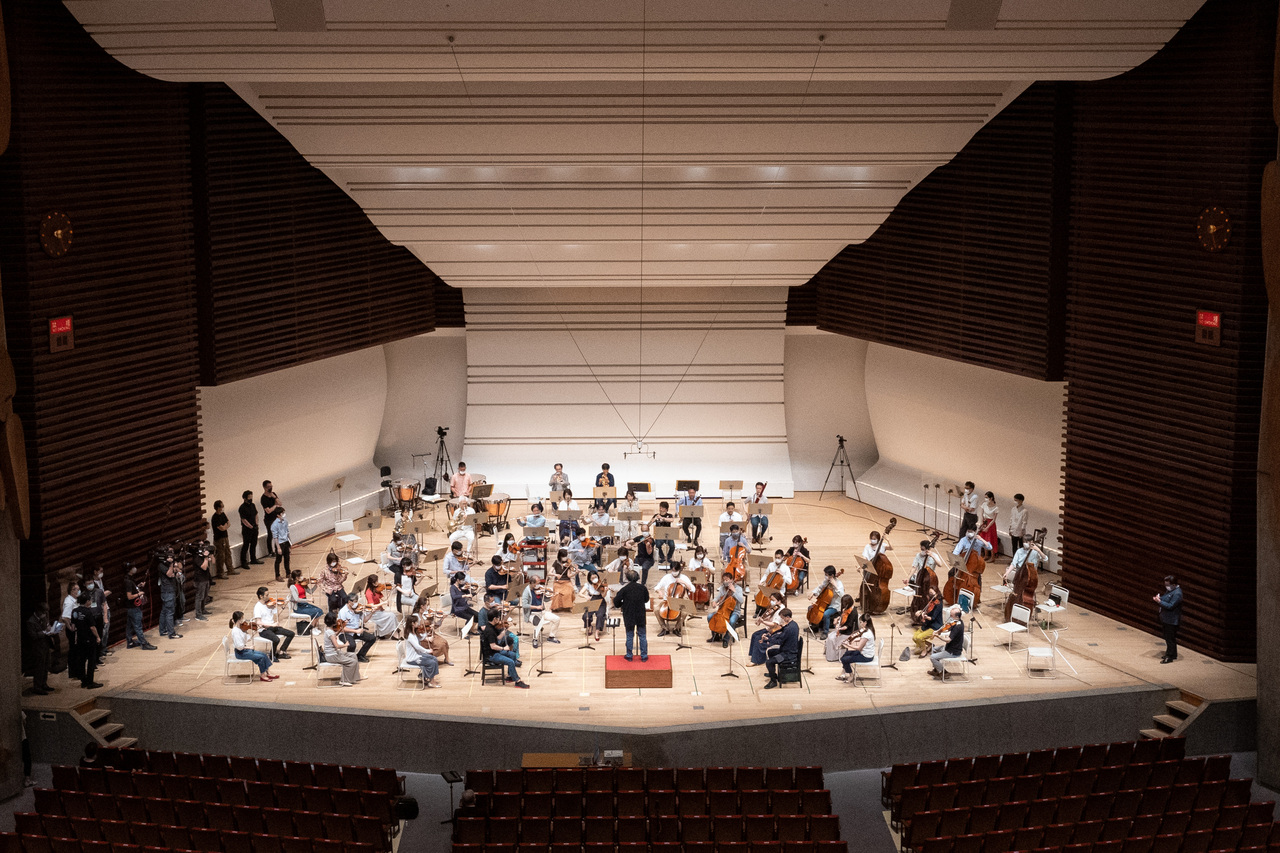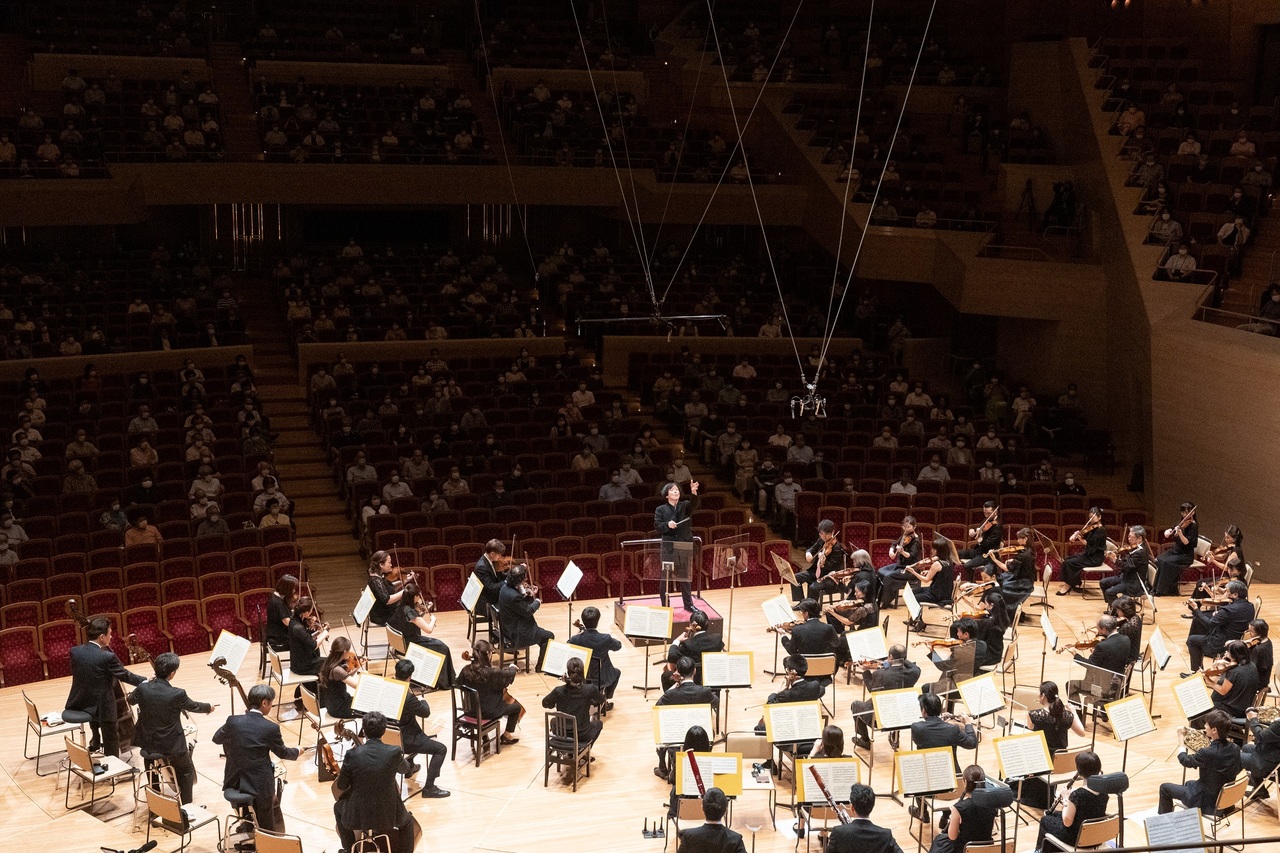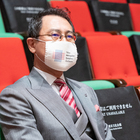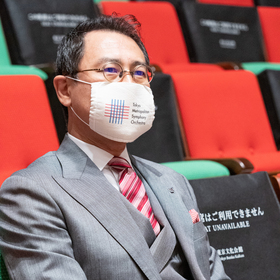It’s good to fight. But first, let’s survive
I feel it’s like long time ago when we were joking; “The name New Corona reminds us a TOYOTA car which once existed” “So if it upgrades, it will be Mark II?” That aside, we were faced with the prospect of a long battle against an unknown virus. And the whole world is suffering from it. So I think we have to think about surviving as best we can without burning ourselves out. Today’s talk is about the orchestra.
The Tokyo Metropolitan Symphony Orchestra (TMSO), where I work, is a professional orchestra founded by the Tokyo Metropolitan Government in 1965 as a commemorative cultural project for the 1964 Tokyo Olympics. Although it has a short history, it is honored to be considered one of the leading orchestras in Japan these days. Its current music director is the conductor Kazushi Ono.
TMSO is an affiliated organization of the Tokyo Metropolitan Government (a public interest incorporated foundation) and receives about 1 billion yen every year in grants from the government. It is, in itself, the tax money of the people of Tokyo. This determines the nature of TMSO, and while it has the advantage of being able to conduct activities with relative stability, it is also at the mercy of the specific circumstances of the local government.
As a result of COVID-19, all TMSO’s performances have been cancelled for almost four and a half months after the concert on February 26. The European tour scheduled for August was, of course, cancelled as well. Also, a series of school concerts which is one of our most important missions, providing more than 50 concerts a year, has already been cancelled for this year. It is a great loss in terms of income, but above all, it is unfortunate that the children cannot experience the orchestra live.
An orchestra with almost a hundred people crowded together and wind instruments may only be viewed as a massive risk during the corona crisis, and many orchestras around the world have been forced to suspend their activities.
Even so, in May, some leading orchestras in Germany conducted scientific tests and began to report that the risk from droplets was not so high as long as the musicians played without speaking, with a specific distance between players.
This is something that TMSO also needs to do. Let’s try to find a “TMSO model” for the resumption of concerts in the near future. We should make our project available to the media so that the world can learn about the orchestra’s efforts. So, in late May, we started the urgent project, “TMSO Trial for Resumption of Concerts under COVID-19 influence”. This project became much more substantial than we had initially planned, as Kazushi Ono’s leadership and personal connections led to the cooperation of many people, including experts in particle engineering, medical professionals including infectious disease specialists, and even singers. (Held at Tokyo Bunka Kaikan on June 11th and 12th)

An orchestra rehearsal. The players are spaced a little further apart from each other than usual.(June 12, 2020/Tokyo Bunka Kaikan)
©Rikimaru Hotta
Maestro Ono, who has been working in Europe for a long time, had the idea that if we were going to do it, we had to do it for the world and positioned TMSO’s experiment as something significant that represents orchestras in Japan, raising our awareness. Although he came to Japan to conduct the subscription concert in March, it was cancelled, and he could not return to Europe, but it was fortunate for TMSO that he stayed in Japan.
We only had about two weeks from the time we conceived the idea to implement it. And there happened far too many things to mention here. However by reporting and disclosing the results of this project in the form of “A Road Map and Guidelines TMSO version” I believe we were able to perform a particular function. The full text of this “Road Map and Guidelines” can be found on the link below mentioned.

Resuming Performances. The orchestra’s setting was slightly more spacious. The number of visitors was limited to about 600, as opposed to the seating capacity of 2,000. The seats were also sold with spaces between them. (July 12, 2020/Suntory Hall)
©Rikimaru Hotta
Since mid-June, many Japanese orchestras have been gradually resuming their concerts. TMSO also held its first performances in a long time under Ono’s direction on July 12 and 19. Although the seats were far from full because of admission limit, the audience’s loud and warm applause was very gratifying. I was reminded once again that live performance is a wonderful thing. However, as long as foreign artists are unable to come to Japan, the programs lack variety, and the fact is that as long as there is a cap on audience size, the more money we lose with each performance. The financial challenges for the orchestra and the threat of infection continues.
Classical music (especially orchestras and operas), to begin with, is so perfected in terms of content that it is not easy to adapt it to a so-called “new normal”, and frankly, it is not feasible. That said, it is not the time to insist on holding concerts at all costs because music is necessary for society. We must not let the long-term battle become a war of attrition. For the time being, we are finding ways to survive this difficult situation while having the energy to play concerts, sometimes the courage to stop and a few ideas. So, eventually, when people feel safe enough to visit a concert, we will perform in a way that will make people understand that orchestras and music are a necessary part of life.
(July 27, 2020)


